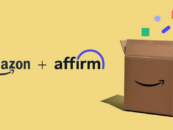The US holds a prominent position in the global fintech scene and is considered one of the leading countries in fintech innovation, investment and market size.
The country possesses the most mature innovation ecosystem in terms of venture capital (VC) firms, entrepreneurs, talent pools, universities, and access to funding, and is home to the largest financial services industry in the world.
The US is expected to remain a critical fintech market and innovation hub this year onwards, with Boston Consulting Group projecting that the country will account for 32% of global fintech revenue growth through 2030.
In light of the US’s sustained dominance in the global fintech scene, we look today at the country’s biggest and most successful fintech companies, delving into the US’s most well-funded fintech companies in terms of VC funding. These companies are pioneers in their respective sectors, driving innovation, challenging traditional financial institutions and capturing the attention of investors.
Stripe – US$9 billion

Founded in 2010 and headquartered in San Francisco, Stripe is a technology company that provides online payment processing services and software tools for businesses. Stripe offers a platform that allows businesses to accept and manage online payments, providing a suite of application programming interfaces (APIs) and developer tools that enable businesses to integrate payment processing functionality into their websites and applications.
The infrastructure allows merchants to accept various payment methods, including credit cards, debit cards, and digital wallets like Apple Pay and Google Pay, and supports transactions in multiple currencies. It also come with advanced security features to help businesses protect against fraud and data breaches.
Stripe is currently the most valuable fintech companies in the world, worth US$50 billion. The company secured its last round in March 2023, raising a staggering US$6.5 billion and bringing its total funding to about US$9 billion, according to data from CB Insights and Dealroom.
Chime – US$2.6 billion

Founded in 2012 and headquartered in San Francisco, Chime operates a mobile banking platform, providing customers with access to various financial services through its mobile app and website. These services are provided by The Bancorp Bank or Stride Bank.
One of the primary features of Chime is its fee-free checking account. The account comes with a Visa debit card and does not have monthly maintenance fees, overdraft fees, nor minimum balance requirements.
Chime also offers a savings account with an automatic savings feature that allows customers to round up their purchases to the nearest dollar and have the difference automatically transferred to their savings account.
The app comes with financial management tools, such as transaction alerts, balance notifications, and a daily spending summary, in addition to a feature called SpotMe, which allows customers to go overdrawn without penalty.
Chime is the third most valuable fintech company in the world and is worth US$25 billion, according to CB Insights. The company has secured a total of US$2.6 billion in funding. Its latest round was a US$750 million financing round closed in August 2021.
Brex – US$1.2 billion

Founded in 2017 and headquartered in San Francisco, Brex provides an unified global spend platform, bringing together corporate cards, expense management, reimbursements, bill pay, and travel, all into one place.
The company’s corporate credit cards are designed specifically for the needs of startups and small and medium-sized enterprises (SMEs) and come with various features and benefits, including expense management tools, integration with accounting software, and streamlined workflows for tracking and categorizing expenses. The cards also offer higher credit limits than what traditional banks typically provide to early-stage companies.
Additionally, Brex offers a range of financial services beyond credit cards such as cash management accounts, expense tracking and reporting tools, rewards programs, access to business financing solutions, as well as an integrated travel solution with comprehensive booking and spend management capabilities.
Brex has raised US$1.2 billion in venture capital (VC), according to TechCrunch, including US$300 million in early 2022 at a US$12.3 billion valuation.
GoodLeap – US$1 billion

Founded in 2003 and based in Roseville, California, GoodLeap is a sustainable home solutions marketplace. The company provides simple, fast, and frictionless point-of-sale (POS) technology for mission-driven professionals serving millions of people who want to upgrade their homes and save money.
GoodLeap’s platform offers flexible ways for consumers to pay for a wide range of sustainable products, including solar panels, battery storage, smart home devices, modern HVAC systems, energy efficient windows, upgraded roofing, water-saving turf, and more.
The platform is actively used by more than 18,000 home improvement professionals, creating an efficient channel for financial institutions to deploy capital in high-performing environmental, social and governance (ESG) assets. The company claims its platform has mobilized over US$19 billion financing for sustainable upgrades since 2018.
GoodLeap has raised more than US$1 billion in funding and is valued at US$12 billion, the Wall Street Journal reported in late-2021. Its latest round was a US$800 million investment secured in October 2021.
Fireblocks – US$1 billion
![]()
Founded in 2018 and headquartered in New York, Fireblocks is an enterprise-grade platform delivering an infrastructure for moving, storing, and issuing digital assets. Fireblocks enables exchanges, custodians, banks, trading desks, and hedge funds to build innovative businesses on the blockchain and securely scale digital asset operations through patent-pending SGX and MPC technology.
Fireblocks is trusted by some of the most recognized banks and financial institutions in the world to bring their digital asset strategies to production, including BNY Mellon, BNP Paribas, ANZ Bank, NAB, ABN AMRO, BTG Pactual, Tel Aviv Stock Exchange, and SIX Digital Exchange.
These institutions have leveraged Fireblocks to build new digital asset custody, trading, clearing and settlement services, tokenization of financial products such as tokenized fiat, central bank digital currencies (CBDC), carbon credits, and more. The company claims it has secured the transfer of over US$4 trillion in digital assets.
Fireblocks has raised US$1 billion in funding, data from Dealroom and CB Insights show, including US$550 million in January 2022 at a US$8 billion valuation.
Bolt – US$963 billion

Founded in 2014 and headquartered in San Francisco, Bolt provides an e-commerce platform and checkout solution for online businesses. Bolt aims to simplify the online shopping experience by offering a seamless and optimized checkout process. Their platform integrates with e-commerce websites, providing a range of features and functionalities to enhance the checkout flow and improve conversion rates.
Key features of the Bolt platform include one-click checkout, advanced fraud detection technology, a customizable checkout design, and analytics and insights. The company also offers is own payment processing solutions, allowing businesses to accept various payment methods, including credit cards and digital wallets.
Bolt has raised nearly US$1 billion in funding, including a US$355 million Series E secured in January 2022 at a US$11 billion.
Plaid – US$734.8 million

Headquartered in San Francisco and founded in 2013, Plaid offers a platform and API suite that enables developers to connect their applications with users’ financial accounts.
Plaid’s primary focus is to facilitate secure and reliable access to financial data and services. The company’s platform acts as an intermediary between applications and financial institutions, allowing developers to build applications that interact with users’ bank accounts, credit cards, and other financial accounts. Key services and features provided by Plaid include account connectivity, transaction data and analytics, payment initiation, identity verification, as well as developer tools and integrations.
Plaid’s network covers 12,000 financial institutions across the US, Canada, UK and Europe. The company says it works with thousands of companies including Venmo, SoFi, and Betterment, several of the Fortune 500, as well as many of the largest banks.
Plaid has raised about US$734 million in funding, data from CB Insights and Dealroom show. The company is valued at US$13.5 billion. Its last round was a US$425 million Series D secured in April 2021.
Gusto – US$700 million

Launched in 2012 as ZenPayroll, Gusto provides a cloud-based payroll, benefits, and human resource (HR) management software for business based in the US. Gusto handles payments to employees, and contractors, and also handles electronically the paperwork necessary to help client companies comply with tax, labor, and immigration laws.
Some key features and offerings of the Gusto platform include payroll processing, employee benefits administration, compliance and tax filings, HR tools, as well as integration with other popular business tools and platforms.
Gusto has gained popularity among small businesses for its user-friendly interface, automated processes, and comprehensive payroll and HR solutions. By simplifying complex payroll and HR tasks, Gusto helps businesses save time, reduce errors, and focus on their core operations. The company claims it serves more than 300,000 businesses nationwide.
Gusto has raised more than US$700 million in funding so far, data from CB Insights and Dealroom show. Its latest round was a US$55 million Series E extension closed in May 2022.
This article first appeared on fintechnews.am
Featured image credit: edited from freepik







